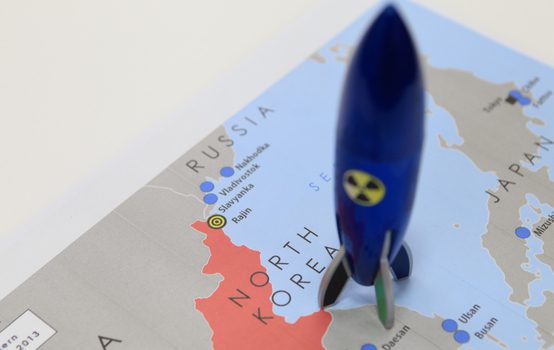The Photo Op Summit

A day before the summit with North Korea, the two sides appear to be as far apart on key issues as ever:
The working-level sessions, including those led by Secretary of State Mike Pompeo, have foundered repeatedly over basic issues of what the summit should be about and an inability to close fundamental gaps in understanding over North Korean denuclearization.
The distance between the U.S. and North Korean positions at such a late stage in the preparations means that the summit meeting between Kim and Trump will be little more than a photo op at best. Both leaders hope to use the meeting as a propaganda coup: Kim gets the recognition he craves, and Trump presumably thinks it will make him appear statesmanlike despite all evidence to the contrary. That is unfortunate, as it squanders an opening that South Korean President Moon did so much to create and allows hard-liners here to dismiss further engagement with North Korea as fruitless. Many of the critics of Trump’s North Korea policy have questioned the decision to have this meeting precisely because we fear that it will hurt the prospects of continued engagement when it yields nothing, and it still seems that way the day before the meeting.
There are things that the U.S. and North Korea might be able to agree to, such as making North Korea’s testing moratorium permanent, but one of the main stumbling blocks has been and will continue to be the insistence on the DPRK’s disarmament. North Korean officials have consistently refused to commit to anything like that, and it seems practically guaranteed that they will not make such a commitment:
U.S. negotiators have been unable to get the North Koreans to offer a substantive pledge on denuclearization up front, which has been the chief demand of the Trump administration.
The issue plagued a May 27 meeting in Panmunjom between U.S. and North Korean diplomats, according to a person familiar with the discussions. The talks began with the North Korean side, led by Choe, saying denuclearization should not be on the table for the Singapore summit — a position rejected by the Americans as a nonstarter.
The two sides did not meet for two days, in part because the North Korean delegation did not have the authority to negotiate without additional guidance from Pyongyang, until reconvening briefly May 30 for a session that made little progress in resolving the impasse.
That wouldn’t necessarily be as much of a problem if North Korea and the U.S. keep talking and trying to find something they can both accept. Based on what Trump has said recently, there is reason to doubt that this will be allowed to happen:
“But I really feel confident,” he added. “I feel that Kim Jong Un wants to do something great for his people, and he has that opportunity. And he won’t have that opportunity again. It’s never going to be there again [bold mine-DL].”
If Trump and his advisers treat tomorrow’s meeting as the only opportunity for an agreement, they are all but admitting that they were never serious about reaching an agreement in the first place. We can hope that they choose to treat it as the start of a long, involved diplomatic process that is needed to find an acceptable compromise, but I suspect that they won’t be willing to do that.
Comments